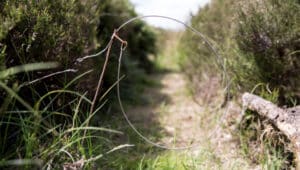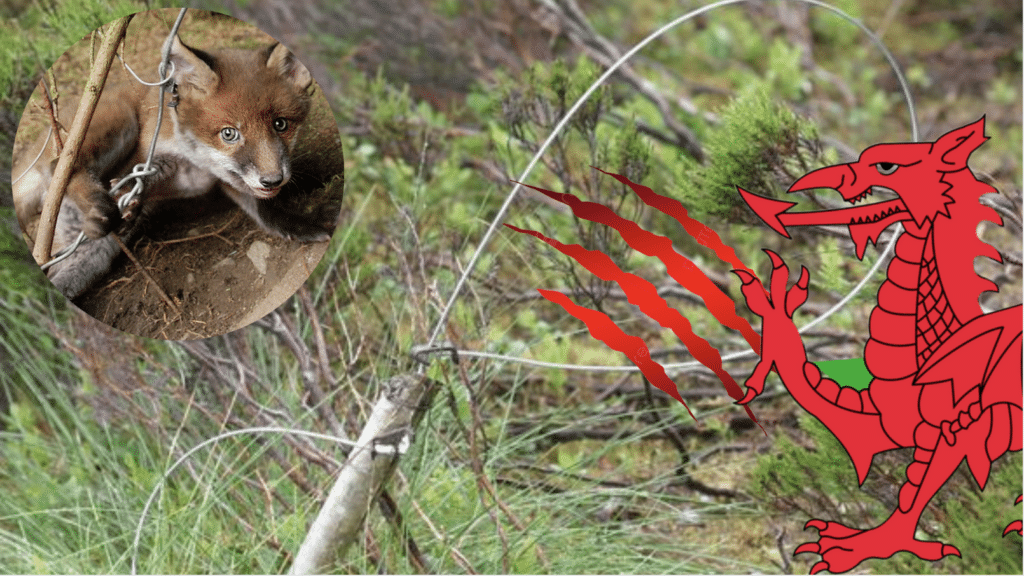The Wales snare ban has finally come into force today, on 17 October 2023. The country is the first in the UK to implement such a ban. Scotland, too, is likely to be following in Wales’ footsteps. Meanwhile, England lags far behind both countries when it comes to the welfare of our wildlife.
The Welsh Senedd agreed to pass the Agriculture (Wales) Bill – which includes a blanket ban on the use of snares and glue traps – back in June, but now the law can finally be enforced. Anyone caught using a snare could face an unlimited fine, prison, or both.
Rural Affairs minister Leslie Griffiths was the driving force behind the ban. She said:
“We strive for the very highest standards of animal welfare in Wales, and the use of snares and glue traps are incompatible with what we want to achieve.
Many animals will now be spared the most terrible suffering as a result of this ban. I’m proud Wales is the first of the UK nations to introduce such a move.”
Not bowing under shooting industry pressure
Snares are used by gamekeepers on shooting estates in a cruel and misguided attempt to protect birds – who are going to be murdered for sport – from predators. Approximately 1.7 million animals are caught in snares across the UK every year.
Protect the Wild has previously covered how Welsh ministers were subjected to pressure from the shooting industry when the ban was being considered. The National Gamekeepers’ Organisation and other pro-shooting organisations and lobbyists tried desperately to convince the Welsh government to add legislation permitting the use of ‘humane cable restraints’, which are just snares with a deceptive name. But Griffiths was having none of it. She said:
“To be very clear, a so-called humane cable restraint and a code-compliant snare are identical in every way, and have been in use since 2012”.
She continued:
“My position remains unchanged… snares, whether they be code compliant—referred to in this amendment as ‘humane cable restraints’—or not, are incompatible with the high standards of animal welfare that we strive for in Wales. They are inherently inhumane for both target and non-target species.”
Days later the British Association of Shooting and Conservation (BASC) threatened to take legal action against the Welsh government. But ministers stuck to their guns. In fact, they ensured that the legislation banning snares was strongly worded, banning “any snare or other cable restraint” so that there could be no loopholes in the law.

The conservation lie
The Countryside Alliance has bemoaned that a snare ban “delivers yet another blow to species conservation”. Shooters love to label their blood sports as essential for the conservation of nature in an attempt to hoodwink the public. But as we consistently point out, if the shooting industry was so keen to protect our ecosystems, it wouldn’t release 40 million Pheasants – native to South Asia, not the UK – into the English countryside each year, nor would it keep Red Grouse numbers artificially high. It will be obvious to Protect the Wild readers that if an industry releases atypically high numbers of prey, a predator population will thrive. But this doesn’t seem to occur to the Countryside Alliance and shooting fanatics.
Scotland next?
Scotland, too, is considering banning snares. Having lost its battle with the Senedd, the shooting industry is now focusing its efforts on convincing the Scottish government that it should make legislation permitting the so-called humane cable restraints. 150 land owners recently pressured the SNP government to try to prevent a blanket ban on snares, while land management and gamekeepers organisations have been telling civil servants that humane cable restraints are a “new development” in snaring techniques.
Scotland has recently banned hunting, introducing new legislation, illegalising loopholes that hunts could use to murder foxes and other mammals. So we can be quietly confident that it will be hot on the heels of Wales and ban snares, too.
For more information on the use of snares in the UK, what animals snare users are targeting, and what to do if we find an animal trapped in one unlawfully, please go to our Protectors of the Wild page > Snares and the Law

